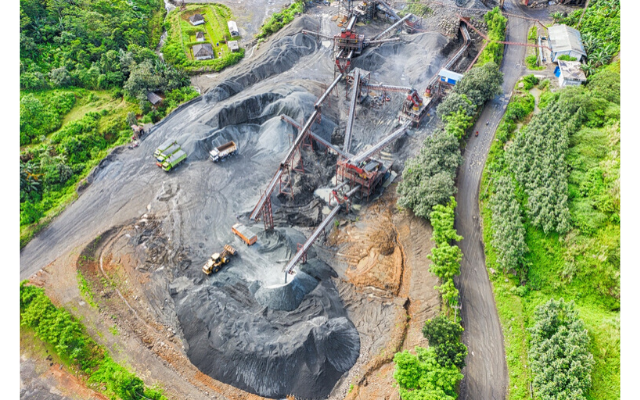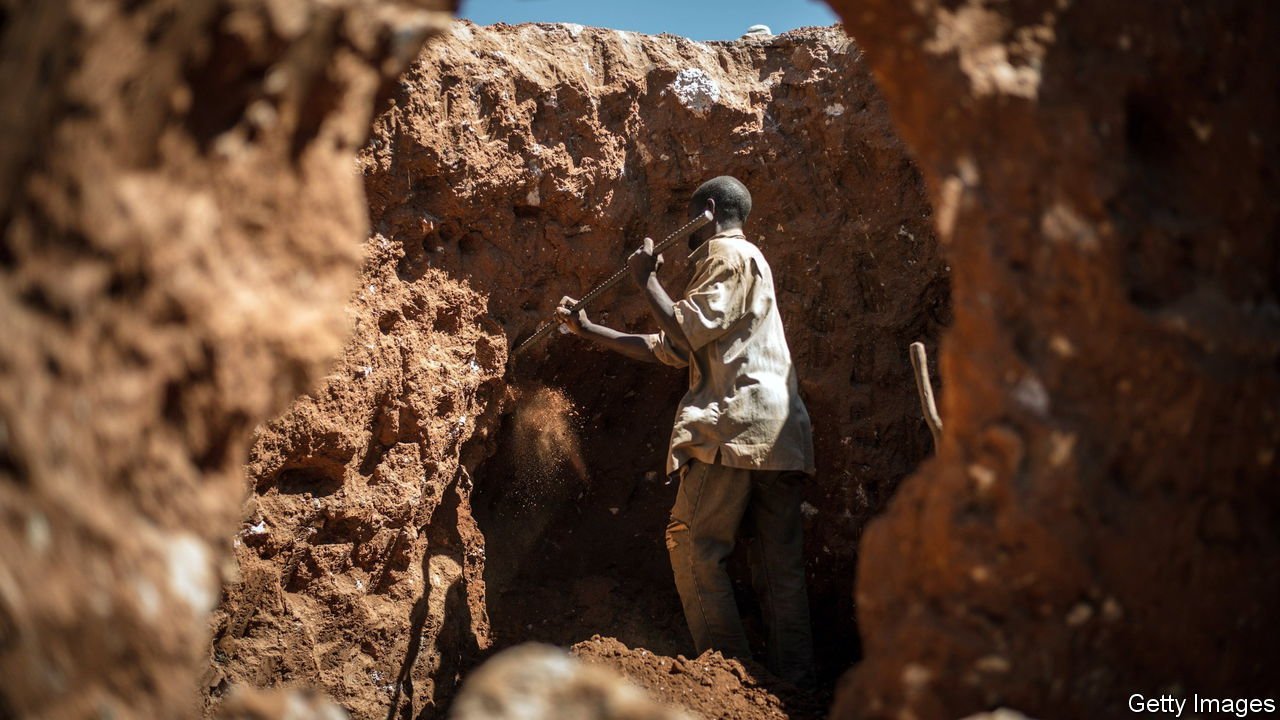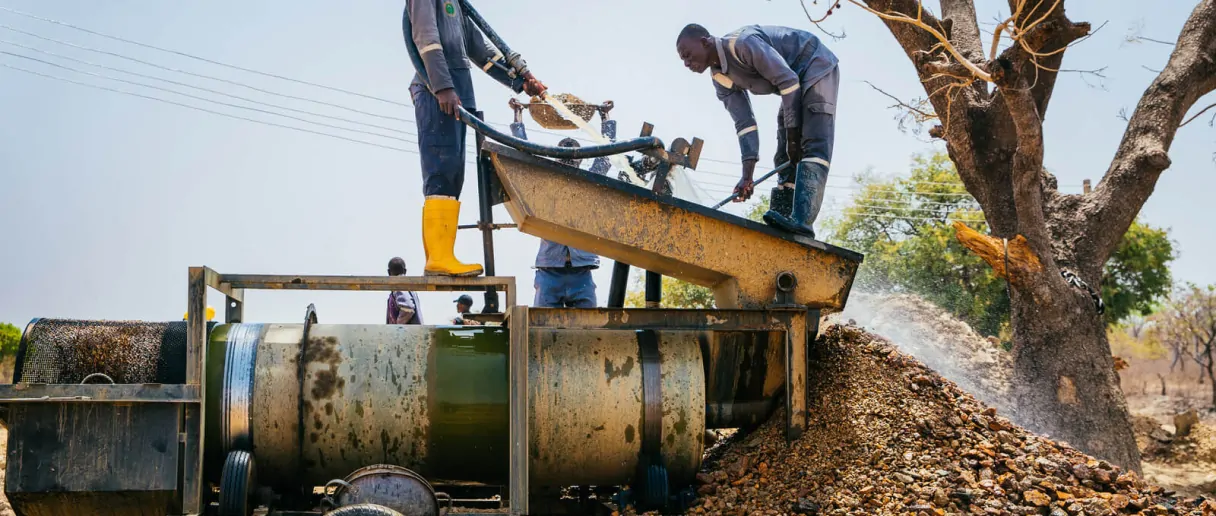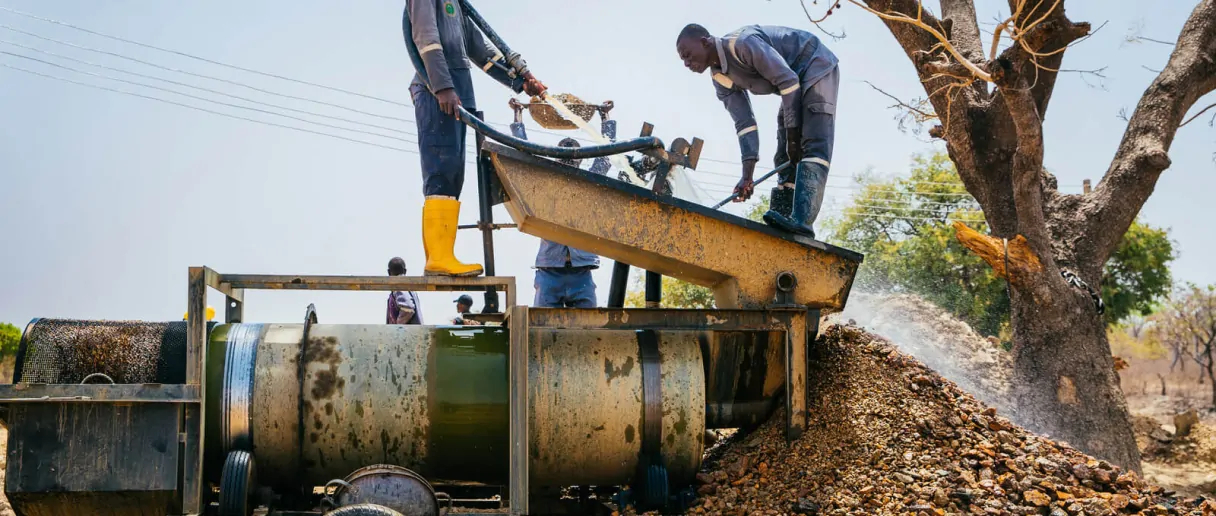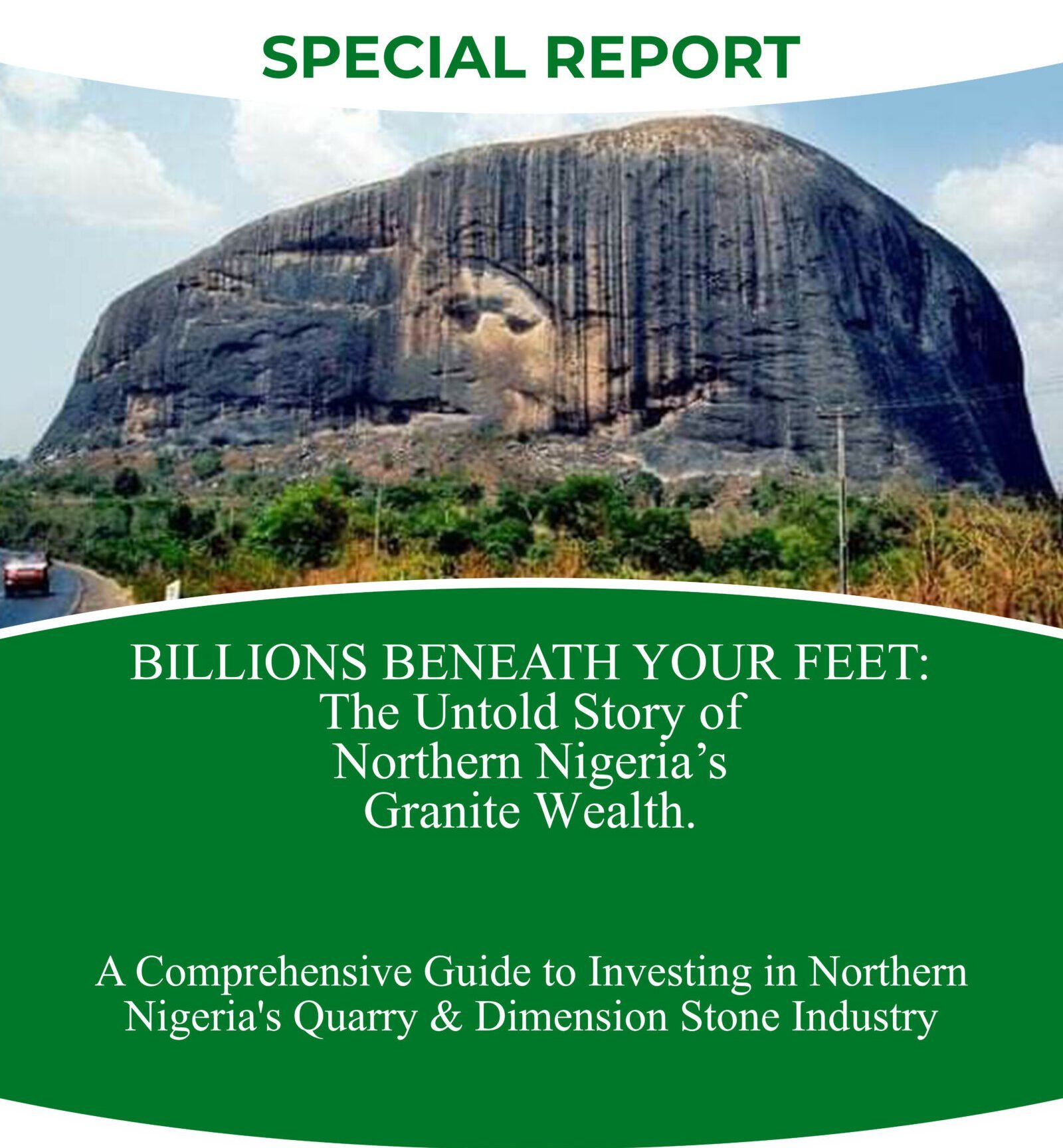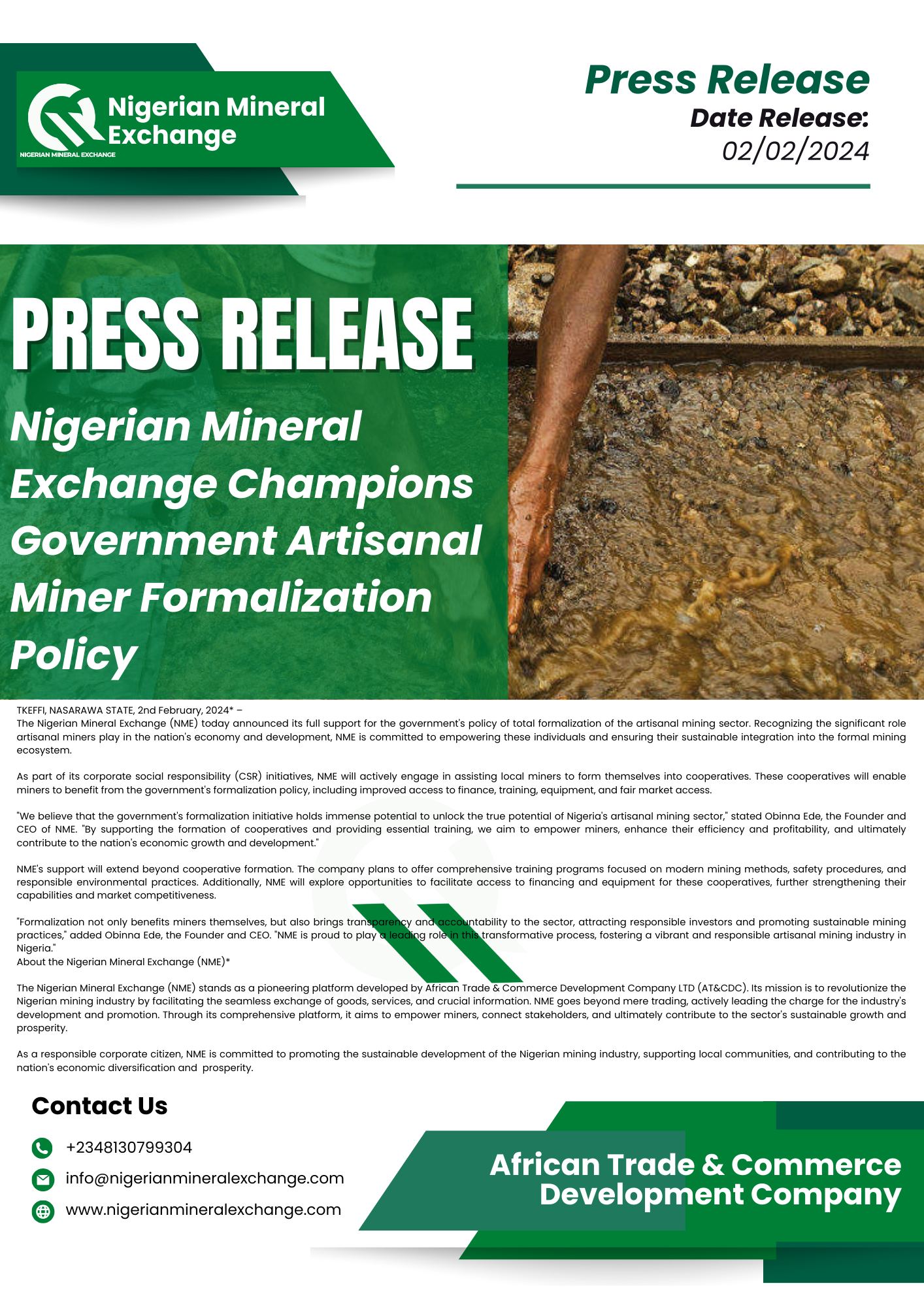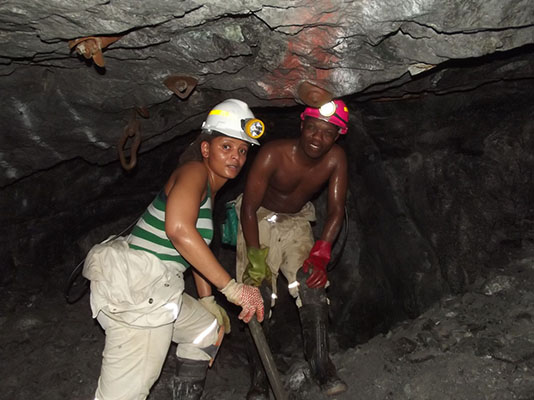Nigeria, with its vast mineral resources, stands at a crossroads. The potential for mining to drive economic growth and development is undeniable. However, the industry also faces significant challenges, including environmental degradation, social conflict, and unsustainable practices. Can Nigeria overcome these hurdles and emerge as a leader in sustainable mining? The answer is not a simple one. But drawing lessons from global best practices offers a glimmer of hope. Here are some key areas where Nigeria can focus: 1. Embracing stricter regulations and enforcement: Countries like Chile and Norway demonstrate the power of strong regulations and transparent enforcement. Implementing clear environmental standards, robust social safeguards, and effective monitoring systems is crucial. 2. Investing in innovative technologies: Minimizing environmental impact requires embracing modern solutions like cleaner processing methods, renewable energy for operations, and mine rehabilitation techniques. Canada and Sweden offer examples of successful technological advancements in sustainable mining. 3. Prioritizing community engagement and benefit-sharing: Sustainable mining cannot exist without the support of local communities. Responsible practices like transparent compensation, community development initiatives, and meaningful participation in decision-making are essential, as seen in Botswana’s diamond mining practices. 4. Promoting transparency and accountability: Initiatives like the Extractive Industries Transparency Initiative (EITI) foster trust and accountability. Nigeria can follow suit by strengthening transparency measures and ensuring information accessibility for stakeholders. 5. Fostering collaboration and knowledge-sharing: Global collaboration is key. Learning from experienced nations like Finland, known for its innovative and environmentally sound mining practices, can accelerate Nigeria’s progress. Challenges remain, but opportunities abound. Nigeria has the potential to become a leader in sustainable mining by: The road to sustainable mining leadership is long but achievable. By actively learning from global best practices, embracing innovation, and prioritizing responsible practices, Nigeria can chart a course for a brighter future, where mining benefits not just the economy, but also the environment and its people. This is just the beginning of the conversation. We encourage you to explore further, learn more about specific initiatives, and join the dialogue on how Nigeria can achieve its sustainable mining potential.
Community, Consent, and Compensation: Building Trust for Sustainable Mining in Nigeria
Nigeria’s mineral wealth holds immense potential to drive economic growth and development. However, this potential rests on a foundation of trust, and that trust requires addressing the concerns of the communities most directly impacted by mining operations. Here’s why community, consent, and compensation are crucial for building a sustainable mining future in Nigeria: Community: More than just neighbors, stakeholders. Mining operations don’t exist in a vacuum. They interact with communities, drawing on their resources, impacting their environment, and shaping their future. Recognizing communities as equal stakeholders, not just bystanders, is paramount. This means open communication, transparent information sharing, and active participation in decision-making processes. Consent: Not a rubber stamp, an empowered choice. True consent goes beyond mere legal permissions. It’s about ensuring communities understand the potential impacts of mining, have their voices heard, and participate meaningfully in decisions that affect their lives and livelihoods. This requires clear language, accessible information, and a genuine commitment to respecting community priorities and concerns. Compensation: Sharing the benefits, addressing the burdens. Mining can bring economic benefits, but it also carries environmental and social costs. Fair and transparent compensation mechanisms are essential to ensure communities share in the wealth generated, while also receiving adequate compensation for any negative impacts on their land, water, and health. This includes not just financial compensation, but also investments in community development, infrastructure, and long-term sustainability projects. Examples from around the world: Nigeria’s path forward: Building trust requires active commitment from mining companies, government agencies, and communities themselves. Here are some key steps: Sustainable mining in Nigeria cannot be achieved without trust. By prioritizing community engagement, informed consent, and fair compensation, Nigeria can pave the way for a future where mining benefits not just the economy, but also the communities that call these resource-rich lands home. Join the conversation: Let’s continue the dialogue and work together to build a future where mining in Nigeria benefits all stakeholders, fostering prosperity and environmental sustainability for generations to come.
Nigeria’s Critical Minerals Boom: Balancing Opportunity with Environmental Responsibility
Nigeria is poised for a mineral bonanza. Lithium, cobalt, tantalum – the critical minerals powering clean energy technologies and electronics – are all present in abundance beneath its soil. This presents a golden opportunity for economic growth, job creation, and technological advancement. However, the excitement surrounding this boom carries a somber undercurrent: environmental responsibility. The glittering potential: Imagine electric cars zooming on Nigerian-mined lithium, wind turbines spinning with cobalt extracted responsibly, and tantalum from Nigeria powering cutting-edge electronics. The economic windfall could be transformative, uplifting communities and propelling Nigeria onto the global stage as a key player in the clean energy revolution. The looming shadow: The reality, however, is not without its challenges. Unregulated mining can wreak havoc on the environment, polluting water sources, degrading fertile land, and displacing communities. The specter of past environmental damage caused by oil extraction raises fears that these critical minerals could come at a steep ecological cost. Walking the tightrope: So, how does Nigeria navigate this tightrope walk between opportunity and responsibility? Striking a balance is paramount. Here are some crucial steps: The Nigerian advantage: Nigeria doesn’t have to start from scratch. The existing legal framework provided by the Nigerian Minerals and Mining Act 2007 lays a foundation. Strengthening its implementation and addressing gaps is crucial. Additionally, empowering artisanal and small-scale miners, often left behind, can be achieved through formalization and integration into sustainable practices, as seen in Colombia. The call to action: The path to harnessing critical minerals while safeguarding the environment demands collective action. Government, mining companies, communities, and civil society must work together. Fostering a culture of sustainability, adopting best practices, and prioritizing responsible development are essential. Nigeria’s critical minerals boom can be a catalyst for prosperity, but only if it’s built on a foundation of environmental responsibility and community well-being. Let’s work together to ensure this glittering opportunity shines brightly for generations to come. Join the conversation: Let’s continue the dialogue and chart a course for a sustainable future where Nigeria’s mineral wealth uplifts lives and protects the environment for generations to come.
Artisanal Miners: Empowering Nigeria’s Informal Mining Sector for Sustainability
While large-scale mining operations often grab the headlines, Nigeria’s mineral wealth has another, often-overlooked player: artisanal and small-scale miners (ASMs). Operating with basic tools and limited resources, millions of Nigerians rely on artisanal mining for their livelihoods. However, this sector faces numerous challenges, hindering its potential and raising concerns about sustainability. Opportunities abound: Despite the difficulties, the ASM sector holds immense potential. It contributes significantly to the national economy, creates jobs in rural areas, and provides critical minerals for local consumption and global markets. Importantly, many artisanal miners hold valuable traditional knowledge about specific resources and mining techniques. The challenges remain: However, the sector faces significant challenges: Empowering for a brighter future: Ignoring these challenges hinders not only the well-being of artisanal miners but also the sustainable development of the mining sector as a whole. Fortunately, opportunities exist to empower the ASM sector and unlock its potential: Examples from around the world: Nigeria’s path forward: By learning from these examples and implementing targeted policies, Nigeria can empower its artisanal mining sector. This requires collaboration between government, NGOs, mining companies, and communities themselves. Together, we can create a future where artisanal mining thrives alongside environmental sustainability, benefiting miners, communities, and the nation as a whole. Embracing Formalization: A beacon of hope emerges in the form of the Nigerian government’s policy of total formalization of the artisanal mining sector. In a bold move, Nigeria’s Minister of Solid Minerals, Mr. Henry Dele Alake, announced a policy of total formalization for artisanal miners, aiming to bring them into the legal fold, unlock their potential, and boost responsible mining practices. This policy, championed by the Nigerian Mineral Exchange (NME), holds immense potential for the development of the entire Nigerian mining industry and the well-being of artisanal miners themselves. Join the conversation: Let’s continue the dialogue and work together to create a brighter future for artisanal mining in Nigeria, where it contributes to prosperity while safeguarding the environment and ensuring the well-being of all involved.
Untapped Potential: How Artisanal Miners Can Drive Sustainable Growth in Nigeria’s Mining Industry
For decades, Nigeria’s mining industry has been dominated by large-scale operations, at least at face value. While these contribute significantly to the national economy, another crucial player often goes unnoticed: artisanal and small-scale miners (ASMs). Operating with limited resources and often outside formal regulations, millions of Nigerians rely on artisanal mining for their livelihoods. But beyond their individual struggles, ASMs hold untapped potential to drive sustainable growth in the Nigerian mining industry. The Numbers Tell a Story: Beyond subsistence: These miners are not merely scraping by. They contribute significantly to the national economy, estimated to account for up to 80% of Nigeria’s mineral production in some states. They provide critical minerals for local consumption and contribute to global markets. Moreover, they often operate in remote areas where large-scale operations are not feasible, creating jobs and economic opportunities where they are needed most. According to former Nigerian Minister of Mines and Steel Development, Dr. Kayode Fayemi, a surprising 10% of Thailand’s $12 billion gemstone industry originates from Nigeria! This highlights the significant, but often overlooked, contribution of Nigeria’s artisanal miners to the global gemstone supply chain. The Minister estimated an average of $3 billion in annual gemstone exports from Nigeria, but the true potential of this sector remains untapped, waiting to be further harnessed and developed. Challenges and Opportunities: Despite their contributions, ASMs face numerous challenges: However, these challenges present opportunities for growth and transformation: Unlocking the Potential: The Nigerian government’s recent push for total formalization of the ASM sector is a positive step. But true transformation requires a multi-pronged approach: A Brighter Future: By harnessing the untapped potential of artisanal miners, Nigeria can achieve sustainable growth in its mining industry. By addressing the challenges and creating an enabling environment, we can empower millions of Nigerians, transform the sector, and ensure that mineral wealth translates to prosperity for all. Join the conversation: Let’s continue the dialogue and work together to unlock the bright future that artisanal mining holds for Nigeria.
Tech for Transformation: Can Technology Bridge the Gap for Nigeria’s Artisanal Miners?
Nigeria’s vast mineral wealth is undeniable, but the artisanal and small-scale miners (ASMs) who extract a significant portion of it often face an uphill battle. Lack of formalization, unsafe working conditions, and limited access to resources hinder their potential and raise concerns about sustainability. Could technology be the key to bridging this gap and transforming the lives of artisanal miners? The Challenges: Millions of Nigerians rely on artisanal mining for their livelihoods, contributing immensely to the national economy. However, they operate with basic tools and limited resources, leading to: Technology as a Solution: Fortunately, advancements in technology offer promising solutions: Examples from Around the World: Nigeria’s Path Forward: Nigeria can harness the power of technology to empower its artisanal miners by: The Future of Artisanal Mining: Technology has the potential to transform artisanal mining in Nigeria, improving safety, sustainability, and livelihoods. By embracing these innovations and fostering collaboration, we can bridge the gap and unlock the true potential of this sector, creating a brighter future for miners, communities, and the nation as a whole. Join the conversation: Let’s continue the dialogue and work together to leverage technology for a more sustainable and prosperous future for Nigeria’s artisanal mining sector.
Billions Beneath Your Feet: Nigeria’s Granite Boom is Here – Grab Your Share (Download the Special Report)
Forget oil, the real black gold lies beneath the sun-baked plains of Northern Nigeria. It’s not just rock; it’s a symphony of molten fire, whispering promises of explosive growth and untold riches. Imagine fiery red granites from the Jos Plateau, whispering white elegance from Lokoja, and enigmatic black whispers from Kaduna – each region a treasure trove waiting to be unleashed. This isn’t just a geological marvel, it’s a global phenomenon. The demand for premium granite and dimension stones, driven by luxury trends and sustainability concerns, is skyrocketing. And Nigeria holds the key, with vast reserves of this coveted resource, especially in Northern Nigeria. Are you ready to claim your share of the billions beneath your feet? Download the Northern Nigerian Granite Special Report and: This report isn’t just information, it’s an invitation. An invitation to join a revolution. The ground beneath your feet is about to shift, and the Nigerian granite story is just beginning. Don’t be a spectator, become a pioneer! Download the report today and: Click here to claim your copy before the opportunity solidifies! The future of granite is calling, and it’s time to answer.
Nigerian Mineral Exchange Champions Government Artisanal Miner Formalization Policy
KEFFI, NASARAWA STATE, 2nd February, 2024 The Nigerian Mineral Exchange (NME) today announced its full support for the government’s policy of total formalization of the artisanal mining sector. Recognizing the significant role artisanal miners play in the nation’s economy and development, NME is committed to empowering these individuals and ensuring their sustainable integration into the formal mining ecosystem. As part of its corporate social responsibility (CSR) initiatives, NME will actively engage in assisting local miners to form themselves into cooperatives. These cooperatives will enable miners to benefit from the government’s formalization policy, including improved access to finance, training, equipment, and fair market access. “We believe that the government’s formalization initiative holds immense potential to unlock the true potential of Nigeria’s artisanal mining sector,” stated Obinna Ede, the Founder and CEO of NME. “By supporting the formation of cooperatives and providing essential training, we aim to empower miners, enhance their efficiency and profitability, and ultimately contribute to the nation’s economic growth and development.” NME’s support will extend beyond cooperative formation. The company plans to offer comprehensive training programs focused on modern mining methods, safety procedures, and responsible environmental practices. Additionally, NME will explore opportunities to facilitate access to financing and equipment for these cooperatives, further strengthening their capabilities and market competitiveness. “Formalization not only benefits miners themselves, but also brings transparency and accountability to the sector, attracting responsible investors and promoting sustainable mining practices,” added Obinna Ede, the Founder and CEO. “NME is proud to play a leading role in this transformative process, fostering a vibrant and responsible artisanal mining industry in Nigeria.” About the Nigerian Mineral Exchange (NME) The Nigerian Mineral Exchange (NME) stands as a pioneering platform developed by African Trade & Commerce Development Company LTD (AT&CDC). Its mission is to revolutionize the Nigerian mining industry by facilitating the seamless exchange of goods, services, and crucial information. NME goes beyond mere trading, actively leading the charge for the industry’s development and promotion. Through its comprehensive platform, it aims to empower miners, connect stakeholders, and ultimately contribute to the sector’s sustainable growth and prosperity. As a responsible corporate citizen, NME is committed to promoting the sustainable development of the Nigerian mining industry, supporting local communities, and contributing to the nation’s economic diversification and prosperity.
Mining for Equity: Women in Mining Nigeria’s Fight for Gender Justice
In the male-dominated world of mining, Women in Mining Nigeria (WIMIN) stands as a beacon of hope for gender equality. This non-governmental organization (NGO) is on a mission to empower women in the Nigerian mining industry, and their fight for justice deserves global recognition. For decades, women have been marginalized in the mining sector, facing discrimination, exploitation, sexual harassment, and limited opportunities. WIMIN is tackling these challenges head-on through a multi-pronged approach that includes: WIMIN’s impact extends far beyond the immediate beneficiaries of their programs. Dr. Janet Adeyemi, the organization’s founder and president, is a true champion for women’s rights. Her dedication and leadership have not only inspired countless women in Nigeria but have also served as a model for women’s empowerment initiatives worldwide. Recognizing her work and the work of WIMIN is crucial to encouraging other women to champion similar causes and dismantle systemic inequalities across various sectors. The fight for gender justice in the mining industry is far from over, but WIMIN has already made significant strides. Yet, challenges remain, including lack of funding, deep-rooted cultural norms, and potential resistance from certain government officials. Despite these obstacles, WIMIN remains undeterred, their unwavering commitment fueled by the transformative impact they create in the lives of women and the industry as a whole. By joining forces and supporting WIMIN, we can contribute to building a more equitable future for the mining industry and beyond. Donate, spread the word, raise awareness, and advocate for policies that empower women. Together, let’s ensure that Dr. Adeyemi’s legacy of fighting for gender justice continues to inspire and pave the way for a brighter future where women can thrive in all sectors, including the traditionally male-dominated field of mining. Furthermore, WIMIN’s work not only benefits women directly but also contributes to the overall development of the Nigerian mining sector, and diversification of the Nation’s economy in general. By bringing more women into the workforce, the industry gains access to a wider talent pool and diverse perspectives, leading to increased innovation, productivity, and economic growth. Additionally, empowering women in mining communities fosters social stability; and improves local economy and the well-being of families and children. Ultimately, WIMIN’s fight for gender justice is not just about mining; it’s about creating a more just and equitable world for all. By supporting their work, we invest in a future where women can reach their full potential and contribute meaningfully to society’s development, breaking down barriers and challenging outdated norms in all spheres of life. Let us stand alongside WIMIN and Dr. Adeyemi, amplifying their voices and working together to create a world where mining, and every other industry, truly welcomes and empowers women, our shining diamonds.
The Future of Nigerian Mining: Exploring Emerging Trends and Technologies
The Future of Nigerian Mining: Exploring Emerging Trends and Technologies Nigeria’s mining industry stands at a crossroads of a revolution. Rich in mineral resources, the sector can propel economic growth and contribute to building a diversified, resilient nation. While its historical reliance on traditional methods has yielded valuable resources, but little development, the future demands a quantum leap into the cutting-edge realm of emerging technologies. From remote sensing and drones to AI and blockchain, these innovations promise a more efficient, sustainable, and profitable mining landscape. Let’s delve into these trends and technologies poised to transform the Nigerian mining industry, from dusty trenches to the boardroom: Eyes in the Sky: Remote Sensing and GIS Imagine mapping vast mineral deposits with pinpoint accuracy, all from the comfort of a control center. This is the power of remote sensing and geographic information systems (GIS). Satellite and drone-mounted sensors can scan the earth, revealing hidden mineral deposits and optimizing exploration efforts. GIS then integrates this data, creating 3D models that guide geologists and engineers in their quest for resources. Drones: The Aerial Workhorses Forget slow, cumbersome vehicles – drones are revolutionizing mine exploration and surveying. Equipped with cameras, LiDAR, and other sensors, these agile aerial robots can map complex terrains, access hazardous areas, and gather data at record speeds. Their cost-effectiveness and versatility make them invaluable tools for optimizing mining operations and ensuring safety. Robots: The Unsung Heroes of the Underground Imagine mines devoid of human miners, operated by tireless robotic machines. This vision is becoming reality thanks to robotic advancements. These tireless workers can perform hazardous tasks like drilling and excavation, enhancing safety and efficiency. Additionally, robots can operate in deep, confined spaces, extracting resources that would be inaccessible to humans. AI: The Mining Brain Data, the lifeblood of modern industries, is especially crucial in mining. But turning this raw information into actionable insights requires a powerful mind – artificial intelligence (AI). AI algorithms can analyze vast datasets, identifying patterns and predicting mineral deposits with remarkable accuracy. This empowers mining companies to optimize resource extraction and make informed decisions. Big Data and the Cloud: A Powerhouse of Information The sheer volume of data generated by modern mining operations demands a robust storage and analysis system. Big data and cloud computing come to the rescue, providing secure, scalable platforms to store and process this information. This allows for real-time monitoring, predictive maintenance, and data-driven decision-making, all crucial for optimizing operations and maximizing profits. Machine Learning: The Self-Improving Algorithm Imagine mining equipment that learns and adapts on the fly. This is the promise of machine learning. By analyzing data from sensors and operations, these algorithms can optimize drilling patterns, predict equipment failures, and even improve safety measures. This self-improvement loop leads to increased efficiency and productivity, propelling the Nigerian mining industry towards a brighter future. Quantum Leap: The Next Frontier While still in its infancy, quantum computing holds immense potential for the Nigerian mining industry. Its ability to perform complex calculations at unimaginable speeds could unlock new avenues for resource exploration and extraction. Imagine simulating mineral deposits at the atomic level or optimizing processing methods with unparalleled precision. While not a near-term solution, quantum computing represents a future where the boundaries of mining are pushed further than ever imagined. Blockchain: Transparency for a Sustainable Future The mining industry often faces concerns about environmental impact and ethical sourcing. Blockchain technology, with its secure and transparent ledger system, can address these issues. By tracking minerals from extraction to end-use, blockchain can ensure responsible sourcing and environmental sustainability, boosting the industry’s reputation and attracting ethical investors. Skills for the Future: A Call to Action Embracing these technologies is crucial, but it’s only half the story. The Nigerian mining industry needs a skilled workforce to capitalize on this technological revolution. Investing in education and training programs that equip workers with the necessary skills in AI, remote sensing, GIS, data analysis, robotics, and other emerging fields is paramount. This will ensure a smooth transition to the new era and unlock the true potential of the Nigerian mining industry. The future of Nigerian mining is not set in stone; it is being shaped right now by the bold embrace of emerging technologies. By investing in these innovations and developing the necessary skills, Nigeria can position itself as a leader in the global mining landscape, ensuring a sustainable, prosperous future for generations to come.

